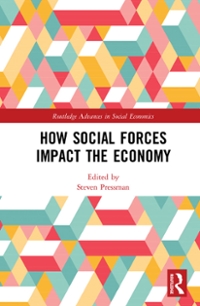Question
Dear Tutor, Please kindly answer: Why are wedding gowns typically purchased and worn only once, while tuxedos, which can be worn on multiple occasions, typically
Dear Tutor, Please kindly answer:
Why are wedding gowns typically purchased and worn only once, while tuxedos, which can be worn on multiple occasions, typically rented?
Also similarly, "Why do drive-up ATMs typically have Braille on their touch keypads?"
Please refer to the detailed Question descriptions below.
Why are wedding gowns typically purchased and worn only once, while tuxedos, which can be worn on multiple occasions, typically rented?
Your response should apply economic principles (e.g., comparative advantage,
opportunity cost, cost-benefit principle) to answering one of the above questions.
Your answer does not need to be correct in that it fully explains the question.
Instead focus on creating an intelligent hypothesis that could potentially be tested
and refined. Also avoid using technical jargon for the sake of being technical. Your
response should be able to be read and understood by an intelligent individual with
no training in economics.
This assignment's economic tool:
Cost - Benefit Principle
A significant amount of economic analysis is done under the assumption that
individuals and firms make decisions based on comparisons of costs and benefits.
For example, why do the countries in our models choose to engage in trade? The
benefits of trade outweigh the costs. Similarly, why do consumers choose to
purchase a good or service in the model? They make this decision because their
willingness to pay (the benefits they receive) outweighs the costs (the prices of the
good or service).
A surprisingly large number of counter-intuitive phenomena in the real world can
also be understood using the cost-benefit principle. For example, one way to
answer, "Why do doors in 24-hour convenience stores have locks?" is to think about
the relevant costs and benefits for a firm producing the doors. There is a cost
associated with creating a brand new door with no locks. But there may be a benefit
to the firm to create a door with no lock because they do not have to pay for
additional materials. We may not observe locks on the doors of 24-hour
convenience stores simply because the cost of designing and creating new doors
without locks outweighs the benefits of using less materials on these doors. This is
not the only correct way to answer this question, but it serves as an intelligent
hypothesis based on core economic principles. To test your understanding of this
idea, try to apply the same principle to the question of, "Why do drive-up ATMs
typically have Braille on their touch keypads?"
Step by Step Solution
There are 3 Steps involved in it
Step: 1

Get Instant Access to Expert-Tailored Solutions
See step-by-step solutions with expert insights and AI powered tools for academic success
Step: 2

Step: 3

Ace Your Homework with AI
Get the answers you need in no time with our AI-driven, step-by-step assistance
Get Started


